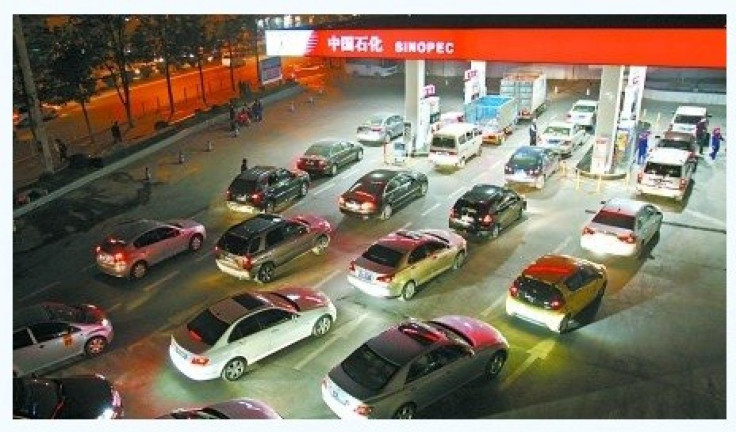Gas Prices in China Cause Outrage

Faced with rising gas prices, Chinese citizens are becoming increasingly outraged.
People interviewed by news organizations in China show frustration and anger, and express a sense of powerlessness. Commuters and workers who rely on their vehicles to get to work or make a livlihood are particularly troubled.
In late March, the price at the pump in China for regular mid-range gasoline reached over 8 yuan per liter, or over $4.8 per gallon. Premium gasoline in China now sells for more than $5 per gallon.
In comparison, the national average for gasoline in the U.S. is $3.94 per gallon.
Chinese gas prices have skyrocketed in recent years, from 4 yuan a liter in 2005 to 5 yuan in 2007, up to 6 yuan in 2008 and 7 yuan in 2010.
Gas prices in China are set by the government. The country is now the world's second-largest importer and second-largest consumer of oil, after the United States.
State Monopolies Accused
The price of gasoline at the pump has essentially doubled in China over the last 7 years.
The rise in gasoline prices affects nearly every sector of the economy, since it also raises the general cost of transportation.
Even average citizens who do not own a car are being affected. Prices for food in China, especially for vegetables, have skyrocketed as well. Agricultural production also relies on petroleum-based fertilizers and transporting crops from rural to city markets.
People are upset that the monopoly of large state oil companies may be exacerbating rising prices.
Speaking to Chinese reporters, Yuan Gangming, a professor at China's Academy of Social Sciences and a researcher at Tsinghua University's Center for China in the World Economy, said that large state oil enterprises should be willing to sustain losses at this time in order to alleviate pressures on average citizens.
Responding to questions from journalists at the Bo'ao Forum on China's Hainan Island, a meeting of international business on economic leaders to discuss Asia's economy, Sinopec Chairman Fu Chengyu remarked that oil prices internationally and domestically have risen and a lot of government offices and departments such as agriculture, fisheries, and transportation receive subsidies, but average citizens do not.
He added, It is understandable that individuals are upset.
Risks For A Booming Car Market
China, where private cars were rare until the 1990s, has seen enornous growth in the number of cars on the road.
In the summer of 2011, it had more than 98 million automobiles of all kinds on the road, of which privately owned automobiles exceeded 70 million. The Chinese government estimates that sales of new automobiles of all kinds grew 28% from Feb. 2011 to Feb. 2012.
China was the world's largest auto producer in 2011, making over 18 million, more than twice as many as the U.S. and more than the entire EU region. Guangzhou Automobile Group CEO Zhang Fangyou told reporters at the Bo'ao Forum that the Chinese auto industry would grow 7.5 percent in 2012
Yet, in per capita terms, China's automobile ownership does not even place within the world's top 100 - and the car market may now face new hurdles, besides risimg fuel prices.
Loans to purchase vehicles are becoming harder to secure from banks; cities are enacting more restrictions on car ownership to combat traffic and air pollution; and parking prices are rising. Those factors may all contribute to lowered car sales.
© Copyright IBTimes 2024. All rights reserved.











